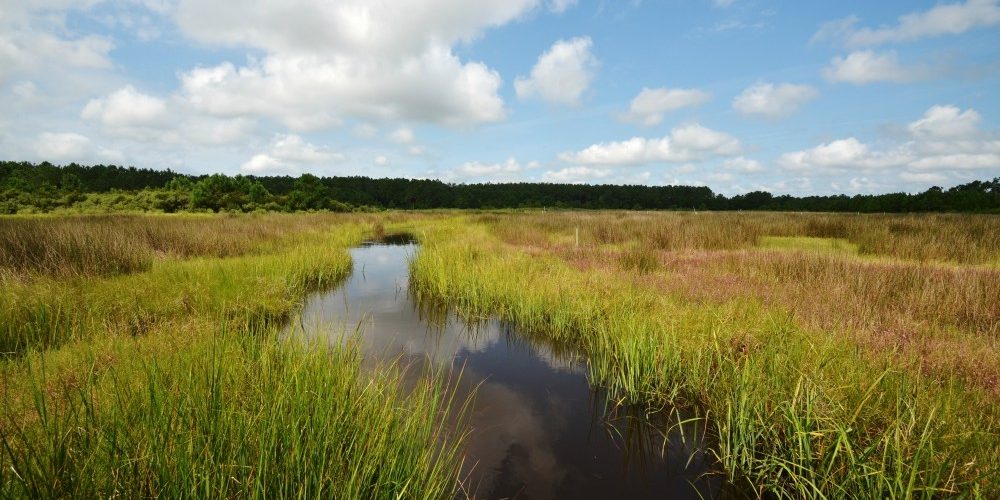The Cape Fear River needs your help. The U.S. Army Corps of Engineers invites public comments until June 30 on a proposal by the State Port of Wilmington to deepen and widen the ship channel from the Atlantic Ocean to downtown Wilmington.
The Corps needs to hear from you, your friends and neighbors. Comments can be submitted on their website, here, or by email to WilmingtonHarbor403@usace.army.mil.
This proposed project is massive. It would deepen the ship channel from 44 to 49 feet at the entrance and from 42 to 47 feet at the Port, widen some parts of the channel by 100-300 feet, and extend the entrance further offshore Bald Head and Oak Islands.
For more background, please read comments the Federation submitted to the U.S. Army Corps of Engineers. It outlines the project’s far-reaching environmental and community impacts, and how it would directly conflict with long-term conservation efforts within the Lower Cape Fear River watershed.
Please feel free to use talking points below when you write your comments.
Talking points to consider:
Deepening and widening the Federal ship channel will:
- Negatively impact fish and wildlife habitats including threatened and endangered species and marine mammals;
- Degrade water and air quality;
- Increase flooding as more water can surge up the river during hurricanes and other extreme weather events;
- Cause more saltwater to intrude further up the river, changing salinity and killing trees;
- Increase wetland and shoreline erosion along the river and on adjacent oceanfront beaches. Long-term erosion trends along both Bald Head and Oak Islands have already been attributed to modifications to the ship channel. More deepening and widening of the channel, “softening” river bends, and extending the channel seaward would likely affect wave energy and sediment dynamics of the entire region. Produce larger wakes from bigger and more numerous ships which will increase already significant shoreline erosion.
- Result in more vessel strikes of turtles, mammals, and fish, and it’s important to examine the impacts that increased erosion and shoreline hardening may have on sea turtle and bird nesting habitats.
- Degrade fishery and bird habitats associated with estuarine islands, shoals and mudflats that provide essential bird resting and foraging habitats.
Natural attributes of the river that need protecting include:
- Spectacular barrier islands, tidal creeks, and marsh ecosystems teaming with wildlife. Fish habitats, vital to our state’s economy, provide for a variety of species, including red drum, mackerel, cobia, bluefish, flounder, shrimp, ten shark species, and over fifty snapper-grouper species.
- “Primary nursery areas” where post-larval and juvenile development of young finfish and crustaceans takes place, and the lower river is also designated as critical habitat for the federally endangered Atlantic sturgeon, which can live up to sixty years and travels upriver to spawn.
- Turtles are commonly found near the Wilmington Port, and neighboring Caswell Beach and Bald Head Island are important nesting grounds for federally protected sea turtles, and within the river, sandy shorelines, shell rakes, and marsh edges are nesting sites for state-listed diamondback terrapins.
- Birds throughout the year include over 330 species spotted in this region, from bald eagles to piping plovers. Thousands of shorebirds stop over during spring and fall migration and to overwinter. Over 25% of the State’s coastal waterbirds depend on the Lower Cape Fear River region for nesting.
- Water quality will degrade because of contamination and sedimentation from dredge material disposal – which is impacted by PFAS and other industrial contaminants – and the activity of dredging itself can negatively impact water quality by stirring up sediments and toxic materials that may be found on the bottom of the river.
- Harbor deepening can also reduce dissolved oxygen levels to unnaturally low levels on the river’s bottom, as well as alter the salinity profiles of the river.
Read More:
- Environmental advocates raise concerns as feds evaluates Wilmington harbor dredging project | WHQR
- Advocates cite risks of planned shipping channel project | Coastal Review
- Open house on Wilmington Harbor project set for June 13 | Coastal Review
Please reach out to Kerri Allen, Coastal Advocate and Coastal Management Program Director with any questions or for more information at kerria@nccoast.org / 910.509.2838 ext. 203

